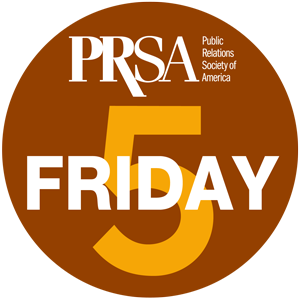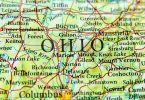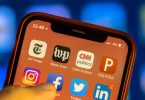How important is authenticity to you? Do you care if a brand misrepresented its product just so you would purchase it or a politician lied about her plans while campaigning in order to gain your vote?

Authenticity is often the differentiator between the impression that you’re being sold something and feeling like youtruly connect with it. What you love most about your favorite entertainers, brands, or goods is likely linked to their authenticity. Whether it prompts a person to vote along party lines, stand in line for hours for an opportunity to buy a new tech gadget or show their support and love through social media postings, authenticity is what drives consumer commitment.
In this week’s Friday Five – PRSA’s analysis of the week’s biggest public relations news and commentary – we’ll review the importance of authenticity. We discuss Nissan’s Reddit event, consider the objectivity of video blog reviews, ping BlackBerry’s “PRFail,” examine Crayola’s hack and observe a comedians influence on Twitter.
Nissan, Reddit defend authenticity of questions in Ghosn AMA (PR Week)
While marketing might help to attract consumers, and public relations will assist with retaining them, if a tactic incorporates something that doesn’t seem authentic or genuine it’s likely to fail. In today’s constantly connected world, where most people can easily check the legitimacy of nearly anything in real time, authenticity is even more important. Nissan learned that difficult lesson during a recent “ask me anything” event hosted by Reddit and featuring the automaker’s CEO Carlos Ghosn.
Participants in the online discussion began to question the authenticity of questions being posted and answered due to the number of new accounts created by event participants. Some felt that the new accounts were created by “plants” arranged to ask easy questions. While the legitimacy of the event was defended by a Reddit representative and even some other veteran Reddit users and chat participants, the stigma associated with a perceived lack of authenticity effectively sidetracks an otherwise successful event.
Read the full article by Lindsay Stein on PR Week’s site for more details and about the steps Nissan plans to take to avoid a similar issue next time.
Cracking the Code of Beauty Vloggers’ Authenticity (Women’s Wear Daily)
Aside from being the go-to source for your daily pet video, YouTube has become a bonafide star-maker. The most recent and notable stars to gain popularity on the site are makeup artist who you may have recently noticed in advertisements for the products they review. Here lays the problem; are those reviews truly presenting an authentic evaluation if the person doing the “review” is also being paid by the company they’re reviewing?
Jayme Cyk explores the question in a recent Women’s Wear Daily piece. While most of the “vloggers” and brands she spoke with stressed their independence, she related one interaction that calls to question the broader base:
“The new generation of vloggers feel entitled, and some of their agents haven’t caught on to the proper etiquette. ‘I thought [vloggers] operated like any other member of the media with respect to editorial, but the very first vlogger I reached out to wanted an obscene amount of money ($5,000) so I kindly declined, and I got a nasty e-mail from their manager,’ explained a brand representative, who requested anonymity. ‘After the whole thing, the vlogger did what some people think is the most insulting thing you can do to anybody nowadays — she un-followed us on Twitter.’”
Read the full piece at the WWD site.
#PRFail: BlackBerry Tweets Promo from an iPhone (PRNewser)
As we saw last year, social media can be a difficult tactic to handle. Maybe it’s because social is so public, or because it’s housed on the internet, or possibly because it’s often assigned to a young, relatively inexperienced social media “maven/maverick/guru/necromancer” or whatever, many of the biggest “PRFail” moments happen on social platforms. Kicking off 2015, BlackBerry made a gaffe this week when it tweeted a photo of a BlackBerry using an iPhone. An eagled-eyed follower noticed and captured a screen grab of the offending tweet before the company deleted the photo.
The year is still very young so we don’t think this will be one of biggest PR mistakes we see this year, but authenticity comes to question when you prefer your competitor’s product over your own.
Check out the tweet in the article on PRNewser.
Crayola’s Facebook Page Got Hacked, and Oh My, Look at the Off-Color Posts (AdWeek)
The ongoing issues of hacking are an understandable plague for brands, not only because of the violation, but because hackers tend to use the opportunity to do exactly the opposite of what a company might be known for. The latest victim to provide an example of this is Crayola. When the company’s Facebook page was hacked this week, followers, who are likely more used to posts focusing on new products for children or suggestions on how to distract kids using bright colors, were instead greeted with R-rated jokes and images.
While the content posted by the hackers was relatively mild by most standards, no one would say that it reflected what the Crayola brand wants to stands for. Alfred Maskeroni of AdWeek’s AdFreak explained:
“Yes, the crayon company is synonymous with childlike innocence. But it was anything but on Sunday, when its Facebook page was hacked by unknown deviants. Once inside the brand’s account, the perpetrators shared click-baity links to R-rated sites throughout the day, sending poor Crayola into a panic.”
On the upside “Crayola’s Facebook page gains thousands of new followers after it was hacked and flooded with porny jokes”.
Some of the (safe for work) content can be found in the article on the AdWeek site.
Aziz Ansari Takes On Rupert Murdoch Over Muslim ‘Jihadist Cancer’ Tweet (The Huffington Post)
A notable tidbit from the WWD article mentioned above:
“According to a survey conducted by Variety, which was given to 1,500 Americans aged 13 to 18, YouTube stars are more popular than mainstream celebs among U.S. teens. Variety noted that this is due to the fact that they enjoy a more intimate, authentic experience with vlogging celebrities who aren’t subject to images or strategies carefully orchestrated by PR pros.”
Don’t tell that to actor/comedian Aziz Ansari. While some of that might be somewhat true, comments, thoughts and opinions of celebrities still carry a good deal of swing and can often hit the always-desired “viral” button when shared by their audiences.
This week Ansari prompted the trending hashtag #RupertsFault when he responded to Rupert Murdoch’s inflammatory comments regarding Muslims in response to the Charlie Hebdo massacre.
.@rupertmurdoch Rups can we get a step by step guide? How can my 60 year old parents in NC help destroy terrorist groups? Plz advise.
— Aziz Ansari (@azizansari) January 12, 2015
Joined by other celebrities and their followers, Ansari likely prompted Murdoch’s eventual apology. Ironically, Murdoch’s apology created more fodder:
@rupertmurdoch Hahahah you got forced to do a fake apology tweet!!! AHAHAHAHA YOU LOSER
— Aziz Ansari (@azizansari) January 14, 2015
Ansari’s initial comments can be found in the Huffington Post article.
Laurent Lawrence is the associate director of public relations for the Public Relations Society of America






